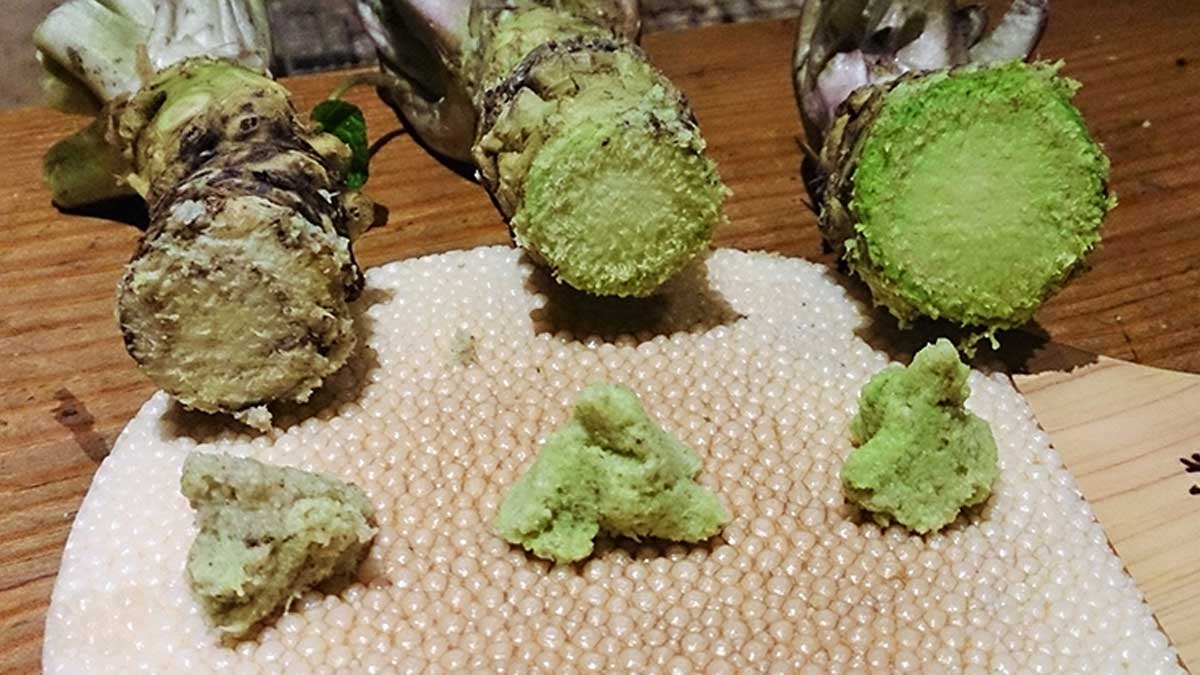
In the search for a healthy lifestyle, we often turn to superfoods and unconventional remedies to enhance our well-being. One such remarkable and underestimated powerhouse is wasabi, the pungent green paste commonly associated with sushi. Beyond its culinary uses, wasabi has been gaining attention for its potential cognitive benefits, particularly in boosting memory.
Table of Content:-
Wasabi and Cognitive Health
Wasabi, scientifically known as Wasabia japonica, is a member of the Brassicaceae family, which also includes broccoli, cabbage, and mustard. The distinctive flavour of wasabi comes from a group of compounds called isothiocyanates, with allyl isothiocyanate being the primary bioactive compound. This compound has demonstrated anti-inflammatory, anti-microbial, and neuroprotective properties in various studies.

Research suggests that the allyl isothiocyanate found in wasabi may play a crucial role in enhancing cognitive function, particularly memory.
A study published in the journal "Behavioural Brain Research" found that rats treated with allyl isothiocyanate showed improved spatial memory and enhanced cognitive performance compared to the control group. While more research is needed to fully understand the impact of wasabi on human memory, these preliminary findings are promising.
Also read: Boost Your Brain Health With MIND Diet: Experts Share Which Foods To Eat And Avoid
How Wasabi Boosts Memory
Anti-Inflammatory Effects
Chronic inflammation has been linked to cognitive decline and neurodegenerative diseases. Wasabi's anti-inflammatory properties may help protect the brain from inflammation, potentially preserving cognitive function.
Antioxidant Activity
Wasabi contains antioxidants that combat oxidative stress in the body. Oxidative stress is known to contribute to age-related cognitive decline, and by reducing this stress, wasabi may support overall brain health.
Also read: From Reading To Solving Puzzles, Hobbies That Can Keep Your Brain Healthy
Neuroprotective Benefits
The allyl isothiocyanate in wasabi has shown neuroprotective effects, potentially shielding nerve cells from damage and promoting the growth of new neurons, which is essential for cognitive function.
Growing Wasabi at Home
While wasabi is traditionally grown in Japan, it is possible to cultivate this unique plant in your own home. Here's a simple guide to get you started:
- Wasabi thrives in cool, humid conditions. Ideally, the temperature should be between 46-70°F (8-21°C).
- Choose well-draining, fertile soil with a slightly acidic to neutral pH (6-7).
- Wasabi can be grown in containers or raised beds. Ensure the container has drainage holes to prevent waterlogging.
- Keep the soil consistently moist but not waterlogged. Wasabi requires ample water to mimic its natural habitat.
- Provide partial shade to mimic the shaded conditions of its native habitat. Avoid direct sunlight, which can scorch the leaves.
- Wasabi can be grown from rhizomes or seeds. Rhizomes are the preferred method, as they provide a quicker and more reliable harvest.
Wasabi, traditionally restricted to sushi condiments, is emerging as a possible ally in the quest for improved cognitive health. Its memory-enhancing abilities, combined with its distinct flavour, make it an intriguing addition to our nutritional options. While more research is being conducted, including wasabi into your meals and experimenting with its production at home may not only tantalise your taste sensations but also contribute to the health of your brain. Accept the green elixir for a tasty voyage towards improved memory and cognitive energy.
Also watch this video
Read Next
Fruits For Hydration: Expert Explains How Fruits Keep You Hydrated And Tips for Fruitful Hydration
How we keep this article up to date:
We work with experts and keep a close eye on the latest in health and wellness. Whenever there is a new research or helpful information, we update our articles with accurate and useful advice.
Current Version